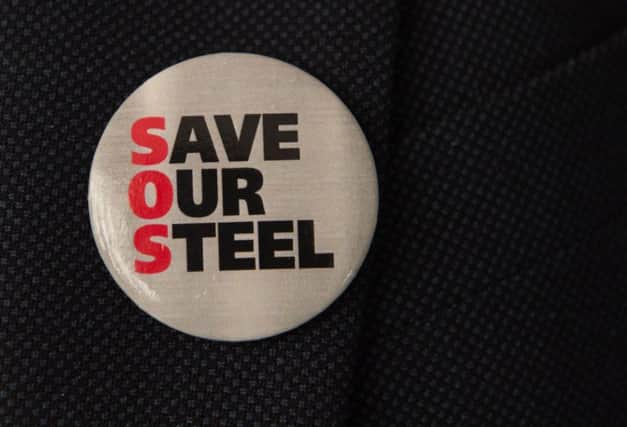Greg Wright: There should be a bit of steel in our relationship with China


After the revelation that China has been dumping large quantities of cheap steel on world markets – and causing a body blow to the UK’s steel industry as a result – it might be a good time to take, a long hard look at our relationship with China. Perhaps it should undergo a fundamental re-examination?
Last autumn, we were told that Chinese President Xi Jinping’s visit to the UK had opened a golden era in UK-China relations. There’s no doubt that much can be gained by doing business with China.
Advertisement
Hide AdAdvertisement
Hide AdThere are plenty of Yorkshire entrepreneurs who can testify that, with patience, you can build lucrative ties with the Chinese economy.
But these assurances have a hollow ring for members of the All Party Parliamentary Group on steel, and the communities they serve. Wentworth and Dearne MP John Healey and his fellow committee members have urged George Osborne to tell the Chinese to stop dumping loss-making steel on the global market.
The glittering relationship seems to have lost its sparkle when it comes to steel.
Many people believe our leaders should be doing more to challenge China’s human rights record. Last autumn, the Tory former minister Tim Loughton questioned why pro-Tibet and free speech protesters were kept behind barriers when Mr Xi was driven to meet the Queen. Mr Loughton said: “Why, in the UK, where our democracy is built on the principle of free speech, were protesters in the Mall... exercising their right to draw attention to human rights abuses in Tibet, corralled behind barricades at the back, while Chinese state sponsored cheerleaders were given Love China T-shirts and Chinese diplomatic bags and given prime position at the front?”
Advertisement
Hide AdAdvertisement
Hide AdThe Government has always maintained that, thanks to the golden relationship, the UK will be better placed to bend the Chinese authorities’ ears over issues such as steel dumping. That may well be true, and Mr Cameron’s spokesman said he raised concerns about the global steel industry when he met President Xi last week.
But I can never forget the Government’s shameful failure to speak up in uncompromising terms in support of the peaceful demonstrators who demanded democratic change in Hong Kong in 2014.
Riot police used tear gas against the unarmed students. We must not run away from our responsibility to challenge the Chinese authorities if we believe they are behaving badly.
Nobody respects a sycophant who fails to confront painful truths.
Advertisement
Hide AdAdvertisement
Hide AdLast week, I ruffled a few feathers by stating that the EU referendum was causing crippling uncertainty for many firms.
Instead of regarding the referendum as a glorious flowering of the democratic process, many business people regard it as a pain in the neck.
The uncertainty surrounding a potential Brexit is actually hurting the economy.
David Cameron should have negotiated the changes to the UK’s membership of the EU long before the 2015 election.
Advertisement
Hide AdAdvertisement
Hide AdIt’s vital that we have a debate about our ties with the EU. But the time to have that debate is at a General Election. Last weekend, a report from Deloitte echoed my concerns. According to Martin Jenkins, one of the region’s most respected dealmakers, the “unsettling effect” of the referendum appears to be contributing to an economic slowdown.
Ian Stewart, Deloitte’s chief economist, said the EU referendum is topping the corporate worry list, and expectations for hiring and capital spending have gone back to levels last seen in 2013.
Historians will scratch their heads when they review our economic performance in 2016. It will be a cautionary tale of wasted opportunities.